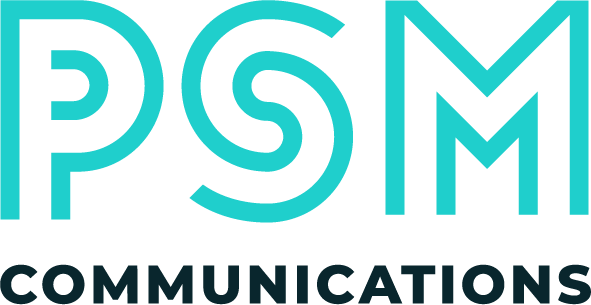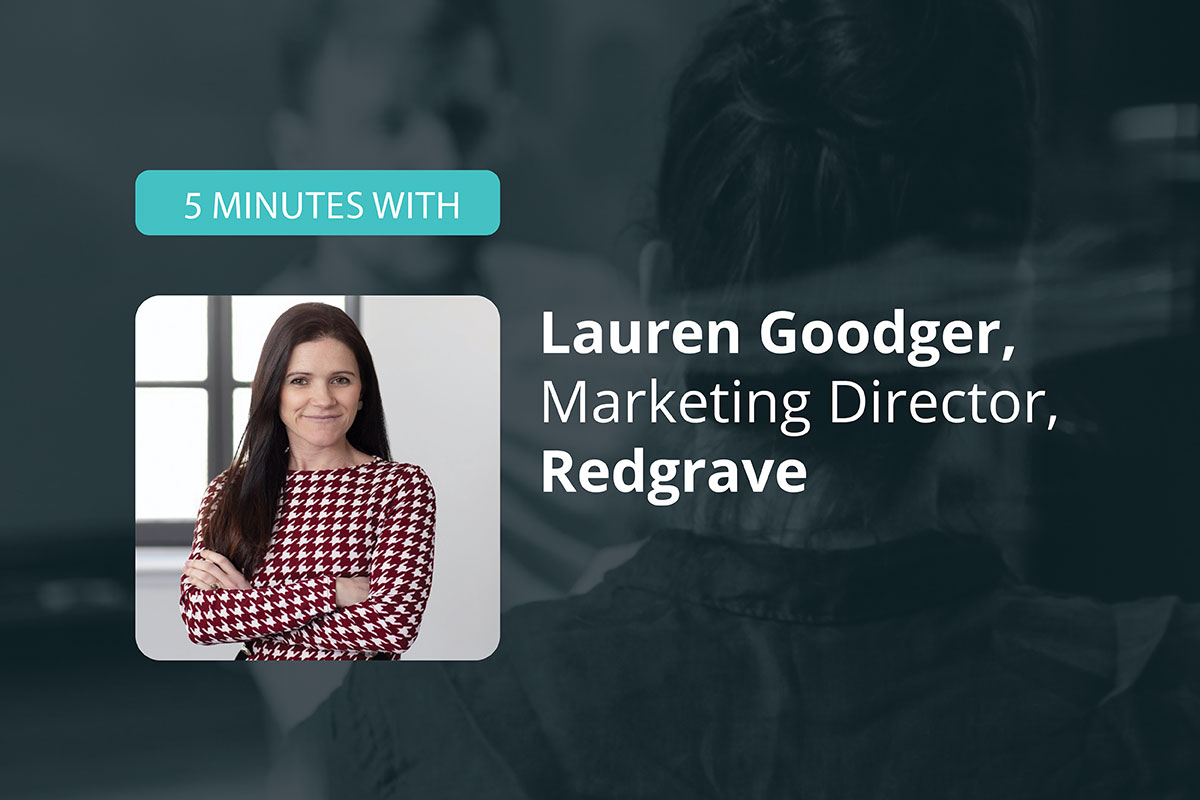This month I’m delighted to be speaking to Lauren Goodger, Marketing Director at Executive Search an Leadership Advisory firm, Redgrave. Lauren has worked for almost two decades in professional services marketing and has huge experience in this space!
Here’s her 5 minutes with…
Lauren, let’s start by you sharing with our readers your marketing background.
I didn’t initially set out to pursue a career in marketing. I started in marketing as a temp at a management consultancy, where I worked as a marketing assistant doing basic administrative tasks, like filing. During that time, my interest in CRMs developed, which led me to my next role, also in management consultancy, where I focused more heavily on CRM systems.
However, this was just before the 2008 downturn, and my role quickly expanded beyond its original scope. After nine years there, working across multiple aspects of marketing, I moved into Executive Search. There were many synergies between the two industries, particularly in terms of audience. It was during this time that I realised I wanted to change course a little and get more involved in marketing at its inception, rather than maintain the work of a well-established function. That led me to join a company where the marketing function was being built. After some great experiences there, I came to Redgrave where I had the opportunity to create and lead the function myself.
What does your role at Redgrave involve?
I’m very much a hands-on generalist as the Marketing Director at Redgrave. My responsibilities span defining our brand narrative, supporting client engagement, and leading our digital strategy. It’s a mix of strategic thinking, creativity, and a lot of collaboration with the rest of the business. It’s fun, varied and challenging (in the right way).
You’ve worked in professional services marketing for many years, what do you enjoy most about this industry and what have been the biggest changes in marketing that you’ve seen in recent years?
It took me 15 years of working in marketing to realise that it actually was “what I want to do when I’m grow up”. What I love most about professional services marketing is the people aspect! To me, marketing can seem very straightforward and instinctive. However, that’s because it’s what I do all day. But I love being able to help people and businesses to be more visible and connected, whether that’s online or directly with key contacts. Over the years, the shift towards digital has been massive, and while this can sometimes feel like we’re moving away from real human connection, it’s become more important to understand how people consume content, interact online, and think about the messages they receive.
What do you think is likely to shape the future of professional services marketing?
It’s hard to imagine things advancing much further, given how far we’ve already come with AI and automation. However, looking ahead, I really hope the focus moves more towards personalisation and more human-centred experiences – which is thankfully already very important. Technology will continue to play a big role for decades to come, but finding ways to create real connections with people will hopefully be a big part of that.
AI is clearly a much talked about area presently, are you viewing AI positively or negatively in regards to how it can support you in your role?
I’m a big fan of AI, especially generative AI. As a one-person team, AI has been a game-changer for me. Even though I’m still not using it nearly as much as I could, or should be, it’s helping me to get more done, more quickly. The challenge, I believe, is making sure you build in the human touch so that communications and insights don’t feel robotic, regardless of whether they were your ideas to start with. I don’t think AI will replace people, but I do believe it’s essential for staying effective and efficient, using the time saved on being creative and thinking strategically – though that’s not always easy with so many competing priorities. For me, AI is a bit like a supercharged assistant who I can bounce ideas off of.
You’ve obviously rolled out many successful campaigns throughout your career, what has been your favourite and why?
Ah, tough question! It’s hard to pick a favourite, but what I enjoy most about campaigns is the variety of assets involved, whether it’s thought leadership pieces, podcasts, webinars, case studies, or infographics. I also love the opportunity to work with different teams, and very often learn about a new topic.
If I had to choose a favourite asset though, I’d probably choose thought leadership. I have a passion for writing, and content creation involves research and the opportunity for learning.
One of the challenges for professional services marketers is getting the buy-in from senior stakeholders to be bolder and braver, how have you overcome that challenge?
Being bolder and braver can be a real challenge as we’re often restricted by brand guidelines and communications policies. However, building trust is key. Demonstrating the value of what you’re doing and aligning marketing efforts with the business strategy. The bigger challenge can be trying to get stakeholders themselves to be bolder and braver, stepping out of their comfort zone. Again, trust is essential. Often this can involve some hand-holding to build confidence, and can be a slow process. But it’s so exciting when you see stakeholders adapting and reaping the rewards.
You hear so much talk about metrics these days, if you could only report on just three marketing KPIs what would they be?
I actually think this is one of the biggest challenges marketing functions face. Very often, the infrastructure isn’t in place to be able to measure what really matters. But it also depends on what your objectives are. If you’re focused purely on brand awareness, you will be measuring different things to those focused more on the sales end of the funnel.
That said, I believe it’s important to understand what metrics will engage stakeholders and get them to buy into the journey. You need to know what matters most to them and what will keep them invested.
When you think back over your career to date, what’s the best piece of marketing advice you’ve ever been given?
It might sound simple, but what I learnt early in my career is the importance of listening and being curious. Don’t assume you know all the answers, ask loads of questions and let yourself be vulnerable. For a long time, I felt like I had to know everything, but only later did I realise that it’s okay to say you don’t know something and that you’ll find out the answer.
Marketing has evolved so much since I started, back when I was stuffing envelopes and sending snail mail! The key is being able to adapt so that you stay relevant. This will be critical for anyone working in marketing.
And finally, what one piece of advice would you give to a high-potential marketer today looking to step into their first leadership role?
My advice would be to learn as much as you can and try to get hands-on experience across all marketing channels. And even if you end up specialising, stay open-minded about the other aspects of marketing and make sure you understand how they all fit together.
Finally, find a mentor who you trust, and who can offer you honest feedback and advice. Having someone you can be vulnerable with, in a safe space can be hugely valuable.

